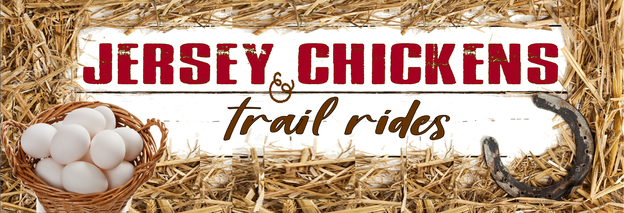Rhode Island Reds are held in such high esteem that they're the official Rhode Island state bird. They were once hugely popular in America, though they declined right along with the small farmer. Today they're making a comeback due to small flock owners. They lay exceptionally well, they're extremely cold hardy, and easy to keep in a small flock. They have a slightly smaller stature then some of our other standard breeds, but that certainly doesn't impair their ability to lay large brown eggs or blend in with other flock members. $10. each
Chick Sexing Guarantee
On standard breeds this procedure is about 90% accurate. This a means that you have a 10% chance of getting a rooster. If you ABSOLUTELY can not own a rooster, please purchase breeds which are sexed much more accurately. Sex links and auto-sexing breeds are sexed with a 99% success rate. This means your chance of getting a rooster is extremely rare. While we do our very best to sell properly sexed birds, please understand the difficulty in this task. We can not take back roosters that you can not keep.
Health Guarantee
We hand raise all of our chicks in the best conditions possible. They are fed medicated feed from the very first day and provided fresh clean water. Their room temperature is precisely monitored and they are socilaized as much as possible. Please understand that when purchasing baby chicks up to 4 weeks old, there is always a possibility of sudden loss. They require more care and closer monitoring then older birds. If you would prefer to avoid this possible situation, please purchase chicks at least 4 weeks old. We do not guarantee the survival of baby chicks once they leave our farm. We do not offer free replacements
Vaccinations
All chicks will be vaccinated for Mareks Disease. We have put much thought into this decision. For many years we did not want to vaccinate, due to keeping the chicks as natural as possible. Due to the extreme popularity of back yard chickens, more and more people are asking about vaccinations. Mareks Disease is starting to become more common, with flocks of backyard chickens popping up in nearly every neighborhood. This disease can spread through the wind or on clothing and shoes of your neighbors who have chickens. It is not harmful to humans, but quite deadly to most chickens. 80% of any flock will likely not survive if they are exposed to Mareks. The vaccination is given on hatch day to the chicks. Medicated feed is still recommended for the first few months to control coccidosis, which is a completely different issue than Mareks.
On standard breeds this procedure is about 90% accurate. This a means that you have a 10% chance of getting a rooster. If you ABSOLUTELY can not own a rooster, please purchase breeds which are sexed much more accurately. Sex links and auto-sexing breeds are sexed with a 99% success rate. This means your chance of getting a rooster is extremely rare. While we do our very best to sell properly sexed birds, please understand the difficulty in this task. We can not take back roosters that you can not keep.
Health Guarantee
We hand raise all of our chicks in the best conditions possible. They are fed medicated feed from the very first day and provided fresh clean water. Their room temperature is precisely monitored and they are socilaized as much as possible. Please understand that when purchasing baby chicks up to 4 weeks old, there is always a possibility of sudden loss. They require more care and closer monitoring then older birds. If you would prefer to avoid this possible situation, please purchase chicks at least 4 weeks old. We do not guarantee the survival of baby chicks once they leave our farm. We do not offer free replacements
Vaccinations
All chicks will be vaccinated for Mareks Disease. We have put much thought into this decision. For many years we did not want to vaccinate, due to keeping the chicks as natural as possible. Due to the extreme popularity of back yard chickens, more and more people are asking about vaccinations. Mareks Disease is starting to become more common, with flocks of backyard chickens popping up in nearly every neighborhood. This disease can spread through the wind or on clothing and shoes of your neighbors who have chickens. It is not harmful to humans, but quite deadly to most chickens. 80% of any flock will likely not survive if they are exposed to Mareks. The vaccination is given on hatch day to the chicks. Medicated feed is still recommended for the first few months to control coccidosis, which is a completely different issue than Mareks.
